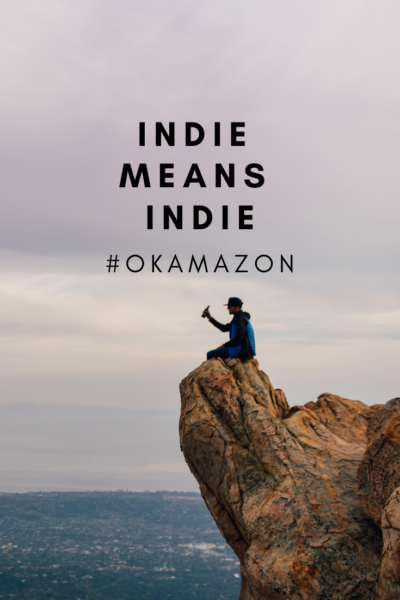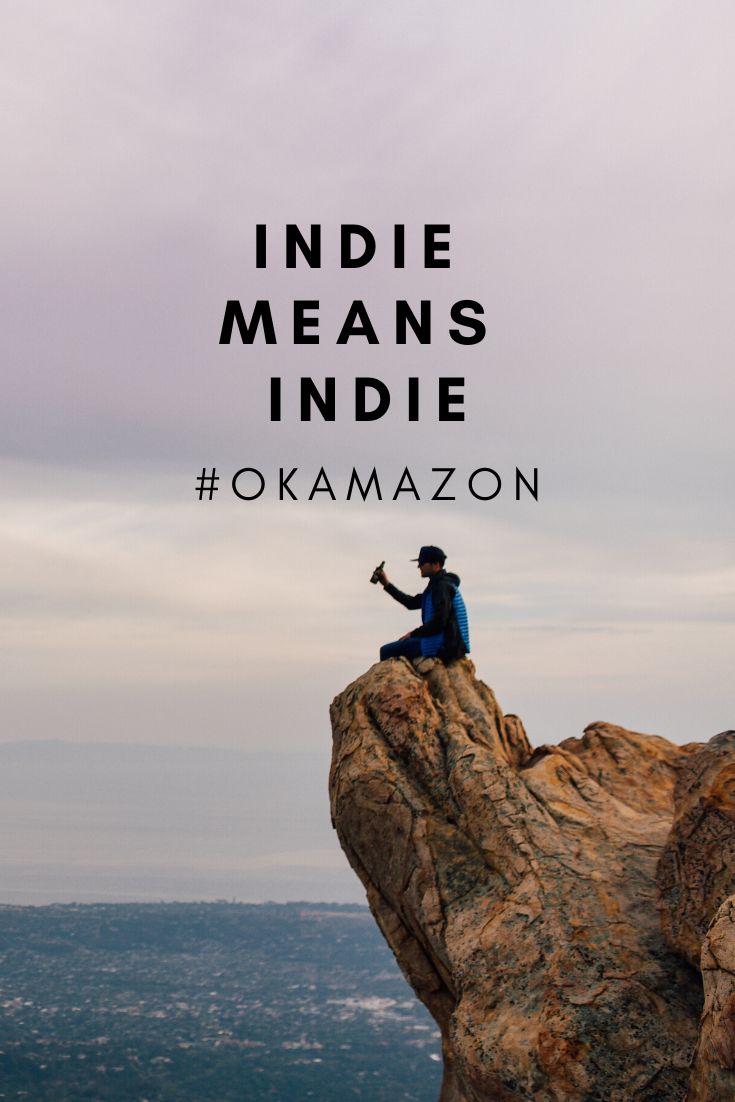Smashwords’ Mark Coker is sounding the alarm about indie publishers (those who write and publish their own works—let’s get the terminology right–it’s INDIE publishers, not the deprecating “self-published”) relying too much on Amazon.
I agree with Coker.
Two and half years ago, I started advertising on Amazon’s AMS platform. It doubled my sales. But then, everyone else found the platform and the cost of advertising has sky-rocketed. I get it. There’s competition, as there should be. But what I don’t get is that the platform is confusing, frustrating, and most of all, inconsistent. You may advertise using Keyword A and get fantastic results. If you try to duplicate that with a similar title, say the second in a series, however, you’ll probably get zilch. Nothing. Zero. Zip. Nada. There’s no consistency. That’s a simple example, but the inconsistency extends throughout the platform.
I’ve been a member of a Facebook group devoted to figuring out Amazon’s algorithms and advertising policies for about those same two and a half years. In that time, no one can consistently figure out, well, anything. Theories abound. I’ve tried them all.
Respect for My Own Creativity
So. A couple weeks ago, I set a bid at a high level of $0.83. Except, I accidentally set it at $83.00 instead. Fortunately, I monitor the ads closely and caught it within 24 hours. Here’s the thing: it sold books. The ad served, and there were sales. Of course, at the high bid (it charged me about $4-5/bid), I wasn’t profitable. But everything else was right on. I know my audience; they like my book; the keywords were solid; and, conversion rates were solid which means the cover/description were doing their jobs. It’s just that Amazon won’t serve my ads without crazy-high pricing. For whatever reason, Amazon’s algorithm deprecates my title and won’t serve the ads.
I remember going to writer’s conferences and being put off by how people treat editors. Speaking was a baby editor—a fresh-out-of-college-20-something, the only type person who can afford to live on an assistant editor’s salary. She was smart and intelligent, but not experienced. Her opinions on literature were still forming, guided by her senior editors and realities of the marketplace. I cringed at how people treated her, as if she were a princess who, with her magic publishing wand, could change their lives forever. If only she would notice them and their work. They fawned over her. Smart, intelligent, creative people debasing themselves before the Goddess of Publication.
As Emily Dickinson says,
“Publication – is the Auction
Of the Mind of Man –
Poverty – be justifying
For so foul a thing.”
Indie-publishing is hard. It’s a lot of learning, trying, failing, and trying again. But it’s honest and creative work. I no longer have to beg a baby editor to notice me. And I’m not going to beg Amazon’s algorithms to notice me, either.
Of course, I will always need Amazon on some level. They are, after all, the biggest bookstore in the US. My books will always be listed there.
But this is a year to lessen my dependence on Amazon. I’m building an online store—details to come—and will take charge of my own advertising. When I run ads, it’ll be to MY platform, to MY books. Not to Amazon’s platform. I’m an Indie!
Why? Because I respect my work too much NOT to do this. Respect for my own creativity is why I started indie publishing, and it’s the foundation of decisions I’ll make this year about controlling my own sales platform.


Good for you, Darcy! Promotion is the hardest part of being an indie. I used Amazon ads last year that cost me 10 times the profits I made. This year, I stuck to Facebook ads–less expensive but it still added up. During the holiday season, I got over 3,000 link clicks (to my website or Amazon), and sold only 15 books. Guess I can only blame my novel. Not wanting to give up, but I may have to.
Mary-
It’s hard! But don’t give up! We need your voice and your work.
Darcy
Thanks for this post. I also read (and re-read) Coker’s article. The notion of competition had already been weighing on my mind.
I’ve been in indie publishing (though 2020 is my first time publishing my own novels) since before the dawn of Kindle Unlimited and I can’t rationalize away how it seems tied to the devaluation of authors’ works.
Why would I tie myself to one distributor? That empowers the distributor, not me. I’ve read plentiful testimonials of authors doing well with KU. I’m sure there are some who truly are. But the notion of exclusivity just fundamentally rubs me the wrong way. It’s anathema to the independent streak inherent in the “indie” nature.
Personally, I’ll be saying “no thanks” to the exclusivity, for better or worse, on sheer principle. Directly engaging as many distribution channels as I can effectively manage. Opting for varied marketing and visibility choices. And hoping for the best. And here’s wishing you the best, too. Viva la indie!